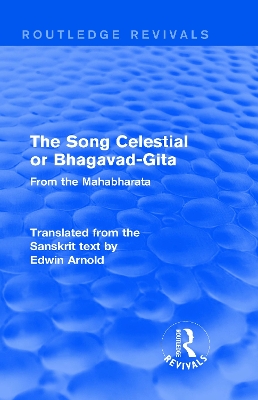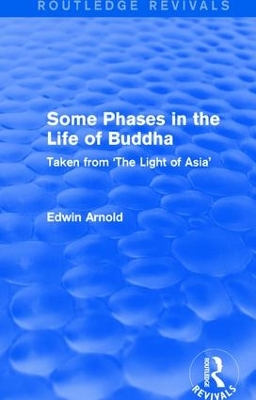Routledge Revivals
2 total works
Routledge Revivals: The Song Celestial or Bhagavad-Gita (1906)
by Edwin Arnold
First published in 1909, this book presents an English translation of chapters 25-42 of the Bhishma Parva from the epic Sanskrit poem Mahabharata — better known as the Bhagavad-Gita, reckoned as one of the "Five Jewels" of Devanagari literature. The plot consists of a dialogue between Prince Arjuna and Krishna, the Supreme Deity, in a war-chariot prior to a great battle. The conversation that takes place unfolds a philosophical system which remains the prevailing Brahmanic belief, blending the doctrines of Kapila, Patanjali, and the Vedas. Building on a number of preceding translations, this highly-regarded poetic interpretation provides a major work of literature in an accessible popular form.
First published in 1915, this book presents a dramatization of part ofthe author's The Light of Asia. The original text represents one of the first successful attempts to popularise Buddhism and its founder Gautama Buddha — presenting his life, teachings and philosophy in verse poetry. This adaptation dramatizes part of the The Light of Asia and includes staging instructions, properties required, illustrative drawings of suggested costumes, and incidental music composed specifically for the piece. This book will be of interest to students of Indian and Buddhist literature — and how this has interacted with the West — as well as students of drama.

